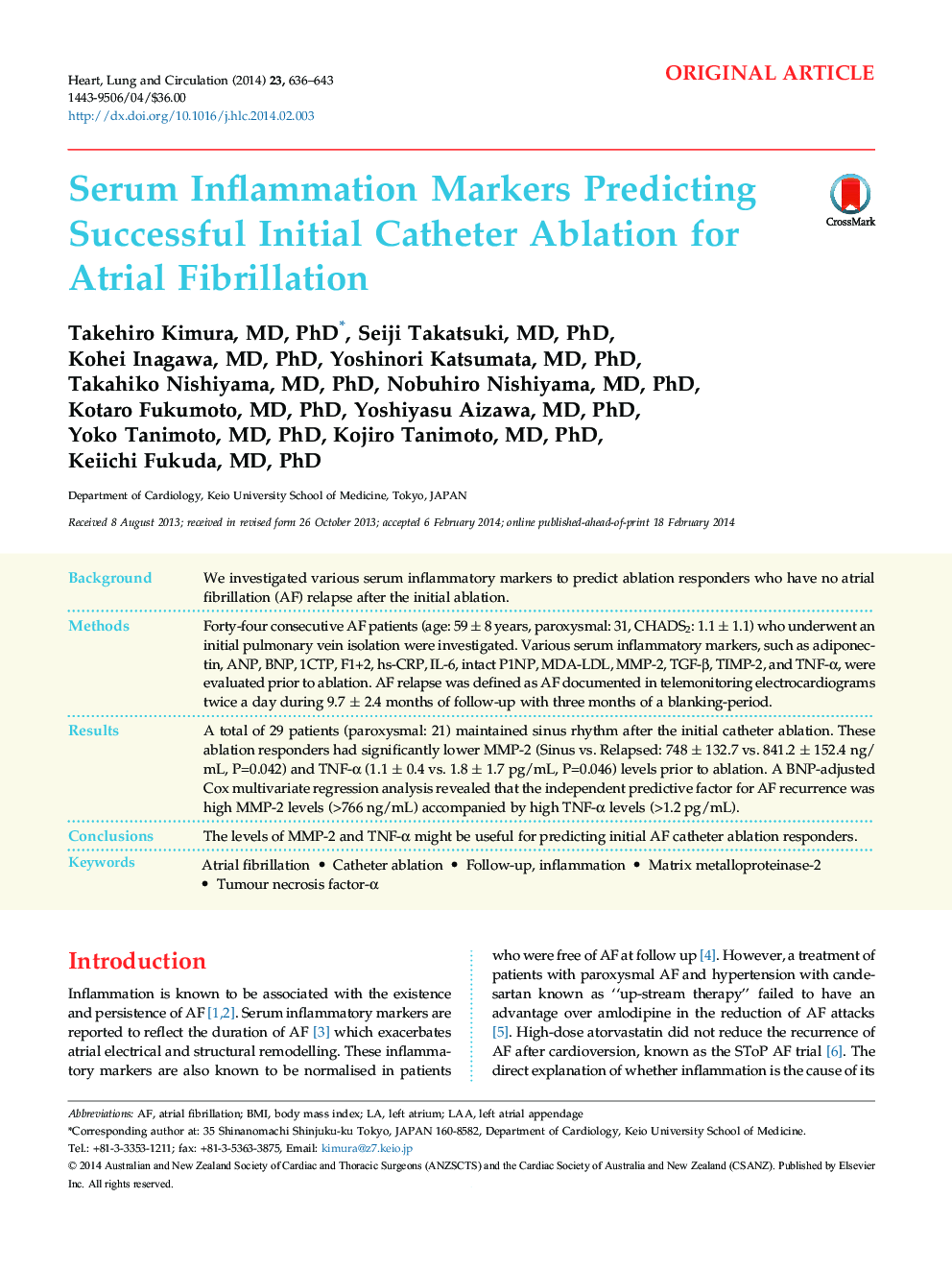| Article ID | Journal | Published Year | Pages | File Type |
|---|---|---|---|---|
| 2918539 | Heart, Lung and Circulation | 2014 | 8 Pages |
BackgroundWe investigated various serum inflammatory markers to predict ablation responders who have no atrial fibrillation (AF) relapse after the initial ablation.MethodsForty-four consecutive AF patients (age: 59 ± 8 years, paroxysmal: 31, CHADS2: 1.1 ± 1.1) who underwent an initial pulmonary vein isolation were investigated. Various serum inflammatory markers, such as adiponectin, ANP, BNP, 1CTP, F1+2, hs-CRP, IL-6, intact P1NP, MDA-LDL, MMP-2, TGF-β, TIMP-2, and TNF-α, were evaluated prior to ablation. AF relapse was defined as AF documented in telemonitoring electrocardiograms twice a day during 9.7 ± 2.4 months of follow-up with three months of a blanking-period.ResultsA total of 29 patients (paroxysmal: 21) maintained sinus rhythm after the initial catheter ablation. These ablation responders had significantly lower MMP-2 (Sinus vs. Relapsed: 748 ± 132.7 vs. 841.2 ± 152.4 ng/mL, P=0.042) and TNF-α (1.1 ± 0.4 vs. 1.8 ± 1.7 pg/mL, P=0.046) levels prior to ablation. A BNP-adjusted Cox multivariate regression analysis revealed that the independent predictive factor for AF recurrence was high MMP-2 levels (>766 ng/mL) accompanied by high TNF-α levels (>1.2 pg/mL).ConclusionsThe levels of MMP-2 and TNF-α might be useful for predicting initial AF catheter ablation responders.
